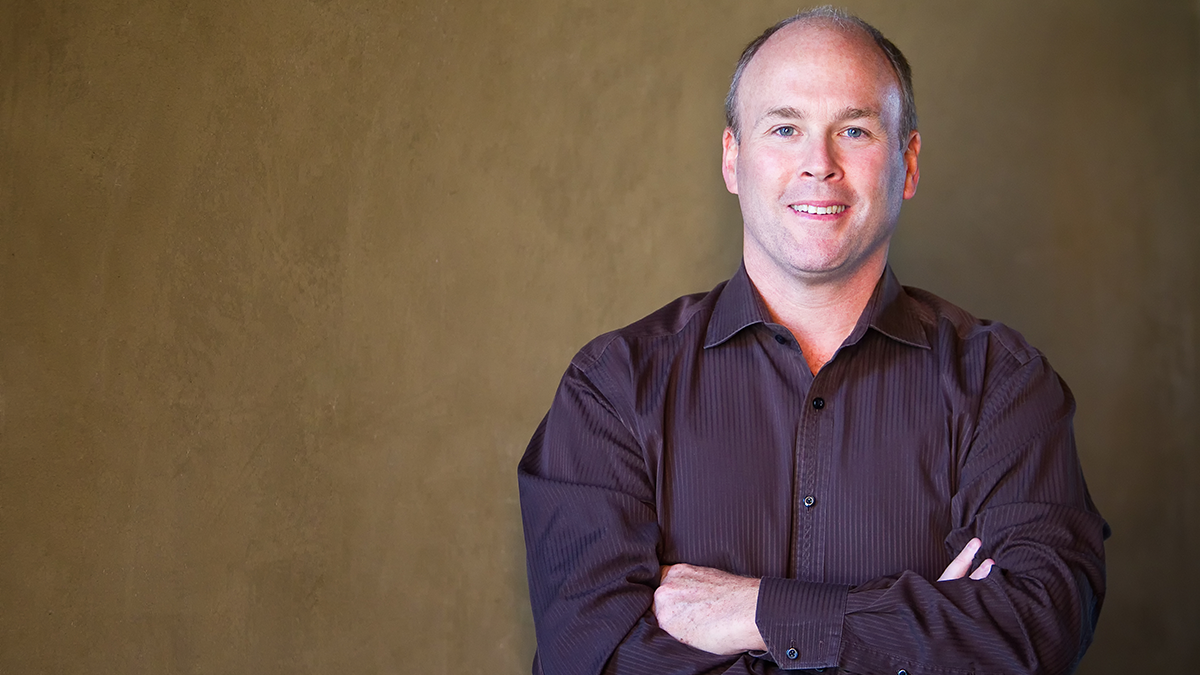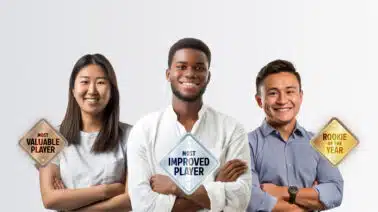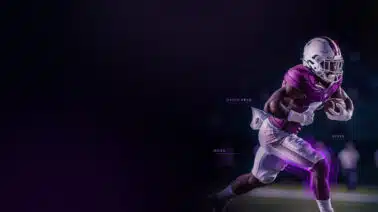Find the right nanodegree program for you.
Start Learning
Career change isn’t always easy, but this Udacity graduate has a habit of embracing risk, and building new careers in cutting-edge fields

We recently hit a significant milestone at Udacity—the graduation of our first class of students from the Self-Driving Car Engineer Nanodegree program! To celebrate these pioneering learners—more than 400 of them—we hosted a special graduation celebration in their honor. At the event, Udacity founder Sebastian Thrun (often referred to as “The Godfather of Self-Driving Cars”), presented every graduate with a special commemorative certificate to mark their achievement. Also present was the program’s Curriculum Lead, David Silver, who took to the stage to congratulate students. During his speech, he offered some simple, but exceedingly powerful words of advice:
When you are trying to break into a new field, the answer to everything always has to be “Yes!”
If ever a student embodied this philosophy, it is Stephen Horton. As he collected his certificate at the graduation, Stephen was marking the next step in what had already been a successful career of saying “yes” to opportunities to work with world-changing ideas. He started his career by making a leap from academic studies in physics and applied mathematics to roles in engineering and software development. Then, excited by growing potential in the mobile sector, he had said “yes” to a role in software at Qualcomm. In over eight years at the firm, he worked on everything from mobile semiconductors to sensors to software strategy. He loved solving issues with new technology, and leapt at every opportunity to engage with something new.
A chance encounter with another new technology spurred what would become an all-consuming interest in autonomous vehicles—a field much newer than the one he was currently working in. Despite the uncertainties that come with an emerging industry, Stephen was excited by the possibilities, and eventually said “yes” to the challenges this new frontier presented—challenges that would require new skills and different experiences to be a success.
“I’ve been motivated by innovation and disrupting markets my whole career. I think there is a real thrill that comes with jumping into a new industry, helping it to grow, and making things better.”
This new chapter for Stephen began when he discovered that a company he was consulting for was producing high-precision GPS sensors for autonomous vehicles. The idea of autonomous transportation got into his head right away, and he could immediately see the transformational possibilities of this new industry—improved safety, reduced road congestion, a better, safer, more efficient commuting experience. He was excited!
He was also a professional with a strong career, and a lot of experience, and he didn’t embrace risk for risk’s sake. If he was going to jump, he was going to do so with an informed plan in place. He took a clear-sighted, businesslike view of how he thought the industry would grow in the future. He researched the industry pragmatically, seeking out signs of rising investment and growing demand. Through this process, he discovered that an increasing number of major companies were announcing plans in the industry, major investors were backing them, and—crucially—a growing number of companies were hiring new talent. He also saw promising legal changes to the sector that had reduced barriers to putting self-driving cars on the road.
“There’s obviously a risk in trying to enter any new industry, but that isn’t a new experience for me. When it comes to careers, an old mentor advised me to ‘follow the money,’ and I’ve always thought that’s an important aspect to examine. You need to be in an industry that’s generating new value and innovation so that it sees significant investment and growth. I definitely see this with self-driving cars.”
All of this convinced Stephen that the autonomous vehicle industry was set to skyrocket in the near future, and he was ready to make a career for himself in the new field.
“I made it my number one goal to make a career transition from mobile semiconductors and software to self-driving cars. I felt the industry could benefit from the experience I’d built through my career, but saw that it also required a whole new skillset I needed to develop.”
Stephen began researching learning opportunities, trying to identify a program that gave him everything he’d need to succeed—cutting-edge curriculum, a focus on job-centric, real-world applications, and the flexibility to balance his new learning regimen with his existing career. He found it all with Udacity:
“I was working full-time as a consultant, so the opportunity to balance study with work was very appealing. I also wanted more than just the theoretical focus that traditional institutions would offer; I wanted to understand the overall architecture in self-driving cars, as well as gain practical, hands-on experience. The Nanodegree program offered all of this.”
Stephen found that the exposure to deep learning concepts, the insights gained from Sebastian Thrun, and the opportunity to see his code working directly in Carla, Udacity’s self-driving car, were clear benefits that made the program a great fit for him. He also found the program’s strong community to be a real highlight, and he formed strong bonds with people from across the world, as they worked through difficult and exciting projects together
“You can really take charge of how you engage with your learning and pick up a head of steam as you go. This doesn’t mean it’s simple—Udacity certainly doesn’t shy away from difficulty within the program. There are times when you do get stuck, but there is also always support available. For example, teams will form around projects and you can work collaboratively to solve difficult problems. By the end of the program, our team was almost like a family located all around the world.”
When it came time to put his learning to work, Stephen attacked his job search with clinical intent, with the help of Udacity’s Careers Team:
“I’d advise any student in the program to take full advantage of everything that Udacity offers, especially the career events. These are invaluable for meeting people about future employment and helped me develop most of my leads for job prospects. I really don’t know a better way to kick off your job search.”
Stephen used these leads to successfully network across the industry, ultimately receiving invitations to interview with a number of top tier automotive companies:
“My Udacity experience has been fantastic. It has all the elements I wanted—education from the experts in self-driving cars, hands-on work experience, a real insight into where I could fit in the industry. It also gave me the support I needed to launch full-speed into the next phase of my career.”
The skills he’d developed through the program placed him in high demand, and he found himself in the enviable position of having to choose between rival offers. Eventually, he picked the role where he saw the most opportunity. Stephen’s new role is in Perception Engineering at Fiat-Chrysler (FCA). He will be working on integrated solutions for autonomous vehicles, part of a broad collection of companies working to advance the technology together. He’ll be calling upon the skills and experience he gained in the Self-Driving Car Engineer Nanodegree program almost immediately.
“I’m super excited about my new role because it will marry much of my previous work experience with the demands of this new industry. What I learned from Udacity about machine learning, AI, sensors, and everything else will be core tenets of what I’m going to be doing.”
Congratulations Stephen on your successful career transition! Your willingness to say “yes!” to new opportunities, and your commitment to lifelong learning, are an example for us all. We look forward to hearing more about your successes as you help inspire development in the future of self-driving vehicles.



